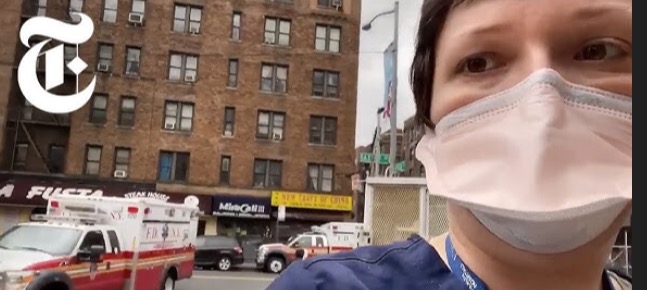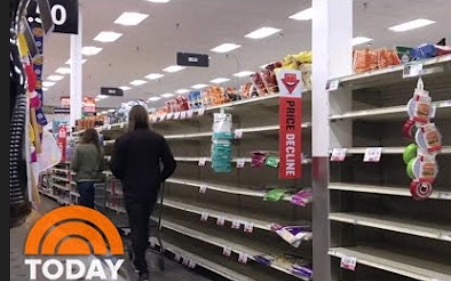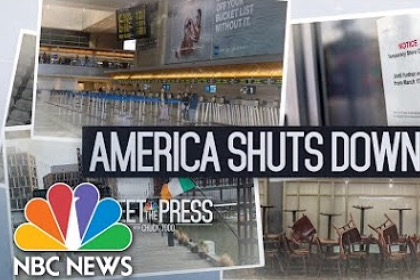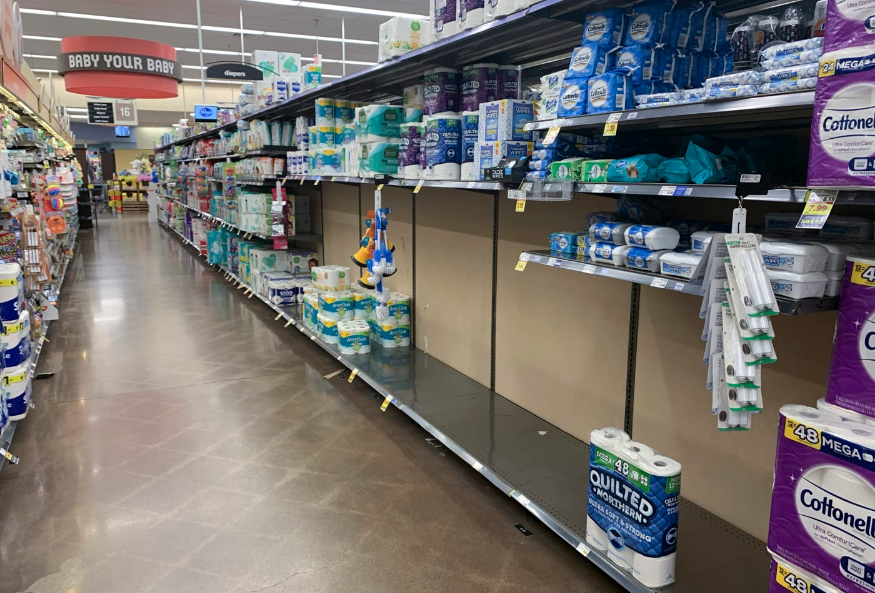Pierce County coronavirus cases now at 231 with five deaths
Pierce County on Friday reported 45 new confirmed cases and another death in the coronavirus pandemic.
The county now has 231 cases and five deaths out of 4,310 tested by University of Washington virology lab and state public health labs.
The latest death from Lakewood, a man in his 80s with underlying health conditions, follows two also from Lakewood reported Thursday, a man and woman both in their 70s, also with underlying health conditions.
Pierce County’s case numbers from Friday are below, with Thursday’s numbers in parentheses.
▪ Bonney Lake: 6 (5)
▪ Central Pierce County: 11 (7)
▪ East Pierce County: 9 (7)
▪ Edgewood/Fife/Milton: 13 (12)
▪ Frederickson: 7 (6)
▪ Gig Harbor area: 14 (13)
▪ Graham: 6 (5)
▪ JBLM: 3 (no change)
▪ Key Peninsula: 2 (1)
▪ Lake Tapps/Sumner area: 7 (6)
▪ Lakewood: 12 (10)
▪ Parkland: 17 (13)
▪ Puyallup: 16 (14)
▪ South Hill 10 (6)
▪ South Pierce County: 4 (4)
▪ Southwest Pierce County 3 (no change)
▪ Spanaway 8 (5)
▪ Tacoma: 75 (60)
▪ University Place: 8 (6)
On Thursday, Tacoma-Pierce County Health Department again changed its reporting methods, adding more cities to the list and redistributing case numbers to different cities as it removed more general county locator descriptions.
As case numbers have grown in the county, the health department has adjusted its reporting style and has added a map to view case locations on its website.
The outbreak of the coronavirus, which causes COVID-19 respiratory disease, has now claimed five lives in the county, including three from Lakewood, one from Puyallup and one from Spanaway.
Underlying medical conditions have been tied to many of the deaths. On Friday, the health department issued a reminder on its blog of what classified as underlying conditions putting patients in the high-risk category:
▪ Heart disease
▪ Diabetes
▪ Lung disease
▪ HIV
▪ Asthma
▪ Pregnancy
▪ Auto-immune disorders
▪ Recent surgery
▪ Cancer treatment
▪ Severe obesity
Read more here: https://www.thenewstribune.com/news/coronavirus/article241569046.html#storylink=cpy
The dirty truth about disinfecting wipes
Always clean surfaces with soap and water first then use your disinfecting wipes or spray.
Wendy Williams Asks Dr. Oz About Whether It’s Safe to Have Sex Amid Coronavirus Outbreak
“I don’t want anybody over here,” the talk show host said
Wendy Williams says she’s abstaining from sex during the novel coronavirus (COVID-19) outbreak.
The talk show host shared an update with her fans on Monday, opening up about a segment from her appearance on Dr. Oz last week about her sex life that got cut from the episode due to a press conference about the coronavirus.
“When I went to Dr. Oz, one of the things I talked to him about, I was like, ‘Dr. Oz, what do single people, including me, do about sex?’ Because as much as a wanted woman as I am, I’m not thinking about that,” she said Monday. “I don’t want anybody over here. I think condoms are something random. You know, what about the sweat and the shower?”
Williams, 55, said that the show’s host, Mehmet Oz, told her that abstinence could be a good idea.
“He ended up saying, ‘You know what? Hold out. It’ll be over soon,’” she said.
The New York City Department of Health has issued guidelines on the subject of sex during the COVID-19 pandemic.
The department makes it clear that COVID-19 can spread “to people who are within about 6 feet of a person with COVID-19 when that person coughs or sneezes,” and that “the virus can spread through direct contact with their saliva or mucus.”
This means kissing is an easy way to spread the virus, and the health department recommends that individuals “avoid kissing anyone who is not part of your small circle of close contacts.”
The department suggested anyone who usually finds sex partners online to “consider taking a break from in-person dates.”
The department also said that “washing up before and after sex is more important than ever,” and recommends using condoms and skipping sex altogether if either person is not feeling well.
In her video posted on Monday, Williams also shared her concern that COVID-19 could be transferred by clothing.
“And then I asked him about, ‘Do clothes carry the [coronavirus]?’ I get in the elevator, I press with my elbow, I pull my sleeve down and press with the material,” she explained.
“Then, as far as clothing, he said, ‘Yes! The germs last for two hours.’ Two hours, darling do you realize when you get out of the subway or your Uber or whatever you’re doing outside, you come inside, you sit on your cloth couch with your clothing on — you’re transferring the stuff!” Williams said.
To keep clothing as clean and as safe as possible, the Centers for Disease Control recommends wearing disposable gloves when handling laundry that was used by a person who is sick.
The CDC also says that it’s important to try not to shake dirty laundry, as shaking the clothing could disperse the virus through the air.
“Launder items as appropriate in accordance with the manufacturer’s instructions,” the CDC says. “If possible, launder items using the warmest appropriate water setting for the items and dry items completely. Dirty laundry from an ill person can be washed with other people’s items.”
It is also recommended to clean and disinfect laundry hampers and to use a disposable liner in hampers.
Article via People
Washingtion GOV. Jay Inslee Updates On Coronavirus Rresponse
To all Washingtion State TiSippers!
NBC Meet The Press Full Broadcast March 22nd 2020
Folks are not taking this coronavirus seriously SMDH
Senate Fails To Advance Coronavirus Stimulus Package
Stay Connected; Stay Informed! COVID19
COVID-19 testing begins Saturday at Tacoma Dome for at-risk population, healthcare workers
PIERCE COUNTY, Wash. — People at higher risk at COVID-19, health care workers and community members on the frontlines of the crisis can be tested for the virus starting Saturday morning at the Tacoma Dome.
The Tacoma-Pierce County Health Department is holding five-day drive-thru testing starting Saturday morning.
In addition to healthcare workers, the department said people working in “critical infrastructure” will be eligible for COVID-19 tests, including grocery store workers, people in homeless shelters, restaurant workers, gas station clerks and public utilities employees.
“Healthcare workers, first responders and people who provide critical infrastructure are on the frontlines of helping residents in need during this public health emergency,” said Jessica Gehle, incident commander for the Health Department’s COVID-19 response. “It’s vital we prioritize this testing for them to ensure they are able to protect the health of our communities.”
Health officials said people over 60, people with underlying health conditions and pregnant woman can be tested at the Tacoma Dome. Testing is intended for people who have symptoms—fever, cough and shortness of breath.
“We want to continue to ensure we do what we can to slow the disease spread in our community,” Pierce County Executive Bruce Dammeier said. “We are pleased to work with the City of Tacoma, the Health Department, and our state and federal partners to make more testing available for our residents.”
Tacoma-Pierce County Health Department, which is operating the site, requires people to complete an online survey to find out if they’re eligible for testing and to register.
Qualifying people will receive a testing identifier number to present at the site. All people must arrive in a vehicle and provide a valid government-issued photo identification. The test is completed using a nasal swab while participants remain in their vehicles. People who arrive without proper testing identification will not get tested.
The Federal Emergency Management Agency provided 8,000 test kits to Washington state earlier this week. A limited number of COVID-19 tests will be available for the five-day event
The health department said more options for COVID-19 testing continue to become available.
Why there will soon be tons of toilet paper, and what food may be scarce, according to supply chain experts
Stuck rationing toilet paper because you didn’t stockpile during the coronavirus panic over the last few days? Don’t worry, according to supply chain experts.
“All the grocery stores are going to have pallets of toilet paper sitting in the aisles, and nobody is going to buy it, because who needs to buy toilet paper when you’ve got a year’s worth sitting in your garage?” Daniel Stanton, a supply chain expert and author of “Supply Chain Management for Dummies,” tells CNBC Make It.
But what about food?
Even if the COVID-19 pandemic stretches over months (President Donald Trump said it could last until August), there will be no big food shortages, especially on staples like milk, eggs, cheese, bread and meat, according to three supply chain experts who spoke to Make It.
But your favorite brand or the exact kind of fruit you want could be scarce.
“The brand that you normally want may not be available. But, hey, there’s some other kind of pasta. Or instead of rice, we’re going to have potatoes for dinner,” Stanton says.
“The U.S. produces a huge amount of food. We’re also an exporter of food, so we’re going to be okay,” he adds.
Many food manufacturers have been adjusting their production lines for social distancing and have increased cleaning to ensure workers’ safety in recent weeks, experts say.
With that in mind, here are the few kinds of products that might actually be harder to find.
Specialty items
Specialty items like imported pastas and wines from Italy, cheeses from France or other niche food products from countries overseas or smaller businesses may be impacted, says Anantha Iyer, senior associate dean in supply chain and operations management at Purdue University’s Krannert School of Management.
These kinds of items may not go out of stock permanently, but it could “get a little tricky,” Iyer tells Make It.
“Some ingredients for nearshore specialty things could get shut off because they can’t come across the border,” Stanton says.
Brandon Hernandez, a supply chain expert and partner at Whole Brain Consulting, who works with specialty brands in the U.S., agrees.
“I think the major items of concern are more tied towards raw materials or packaging coming out of China that support the broader food chain,” Hernandez tells Make It, explaining that China is an important exporter to the U.S. and provides things like quinoa and spices.
Because the pandemic may encourage higher scrutiny of exports, that “could potentially slow down the supply chain,” he says.
As for U.S. specialty products, Hernandez doesn’t foresee a “complete collapse in things like [protein] bars or all the [specialty] chips are going to be gone or anything like that,” but the items may not restock as quickly.
Certain fruits and vegetables
Iyer says Americans may just have to be “a little flexible” on certain types of fruits and vegetables they want to buy in the coming months.
“If you don’t see one type of fruit, you may have to buy another type of fruit,” he says.
That’s because some kinds of produce are imported from other countries, so there may be delays in shipping if ports begin to close.
Hernandez agrees it is possible that Americans could see gaps in availability.
“I’m not saying that it’s impossible that you won’t see bananas become scarce or strawberries in the back half of the year, because they shift from California production to Mexico production.”
“Maybe it’s possible, but it really depends on what they decide to impose at the borders from the [Food and Drug Administration] and the [United States Department of Agriculture] standpoint,” Hernandez says.
Overall, however, Stanton believes many domestic farmers and ranchers, who have been struggling in recent years, could actually see a boost amid the pandemic, as the U.S. may look to local suppliers for produce instead of international suppliers.
Article via CNBC











